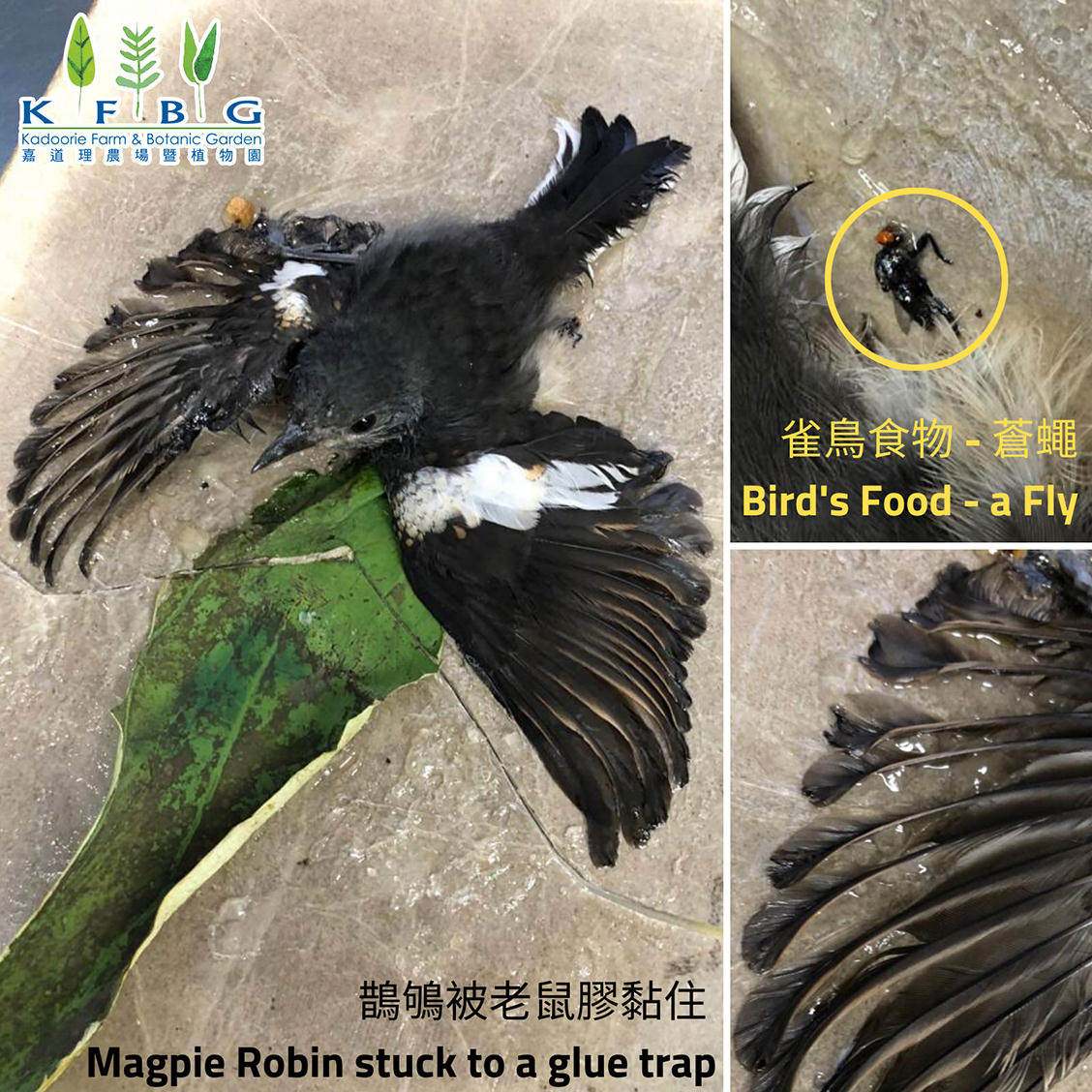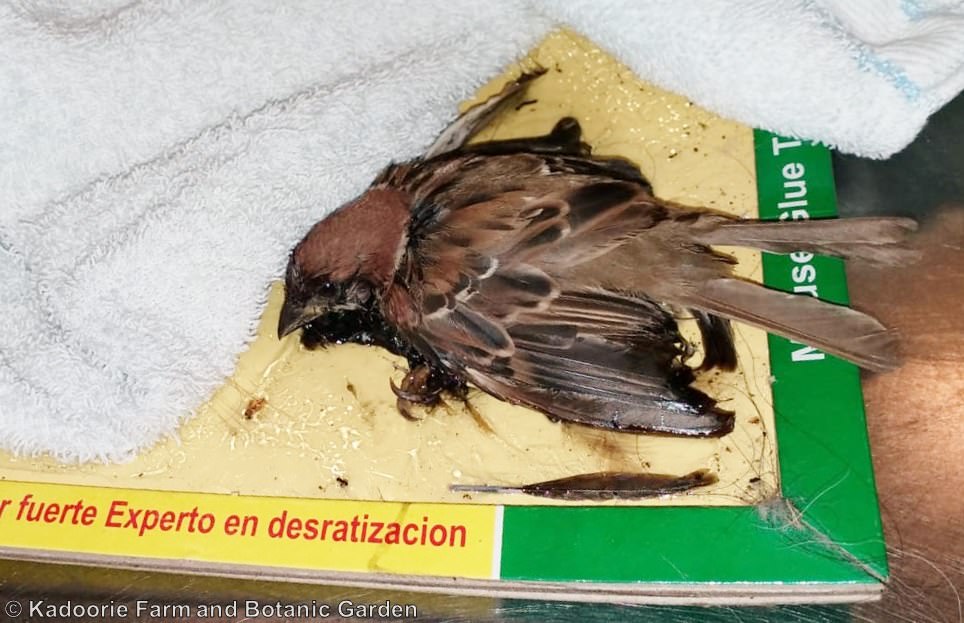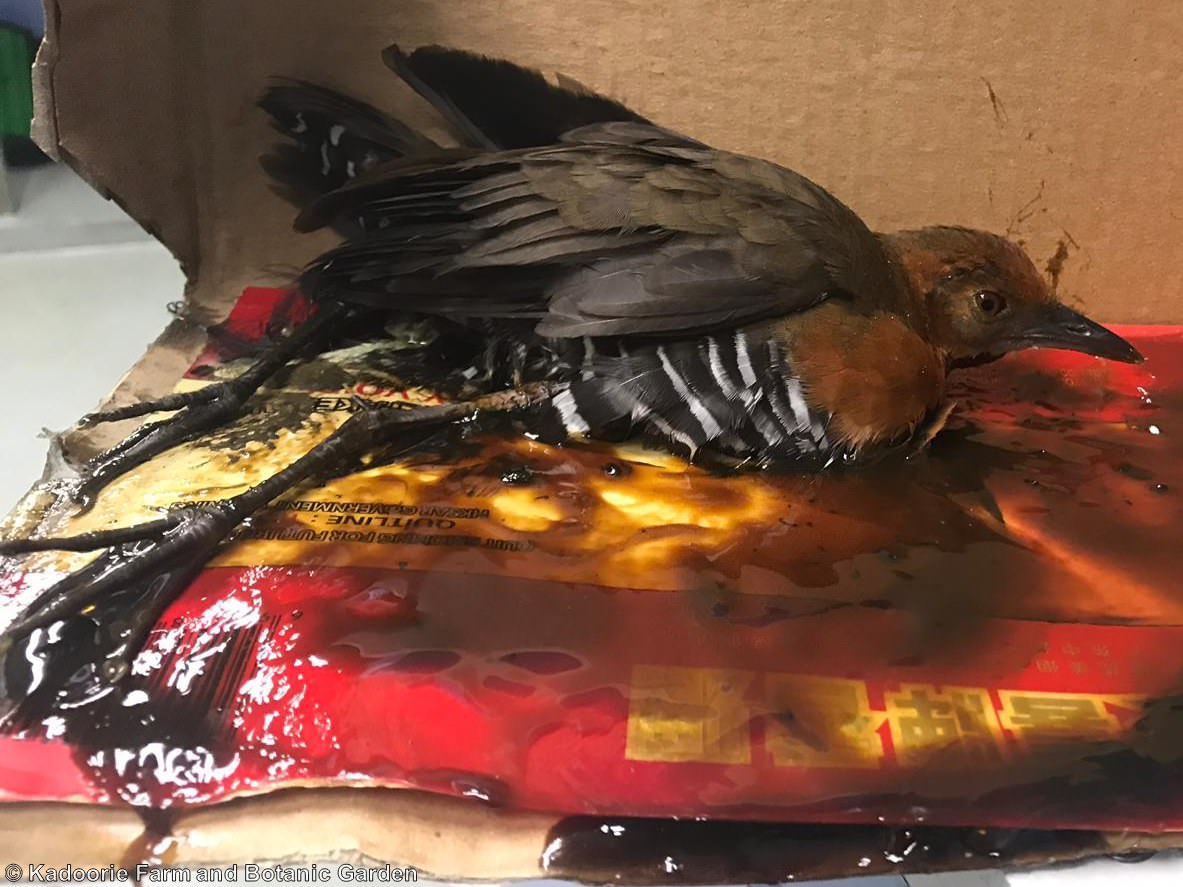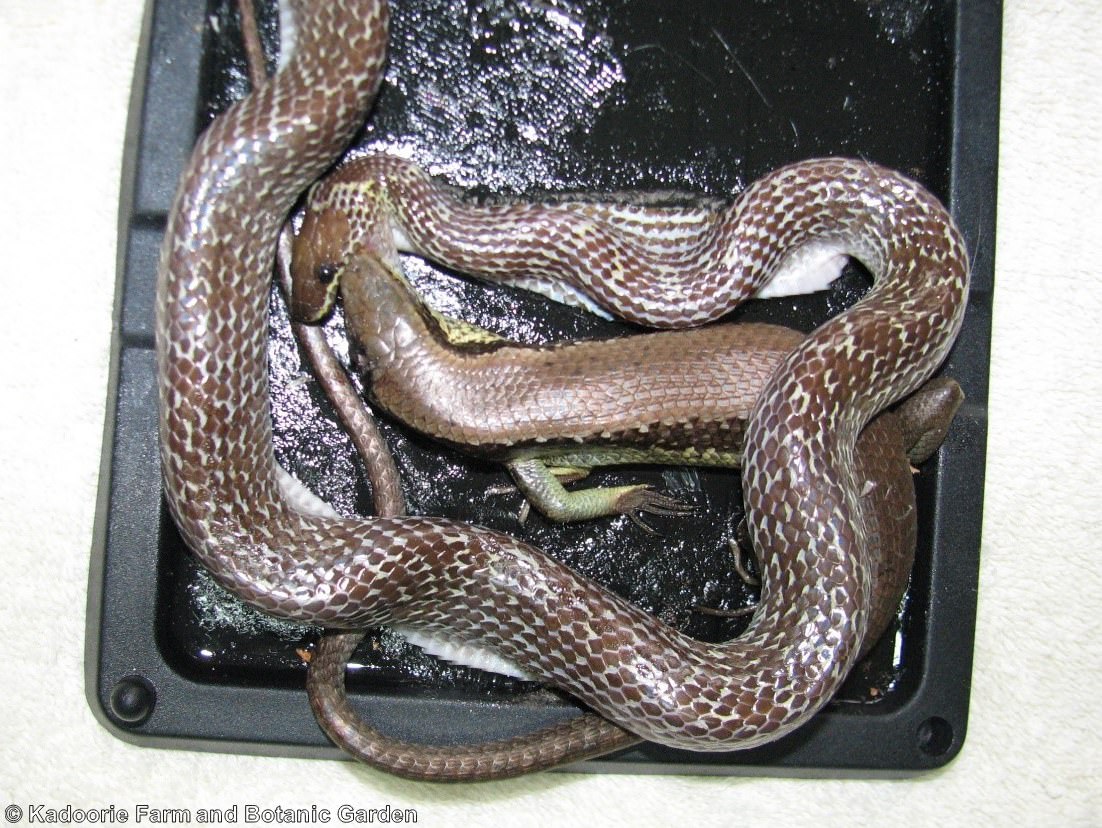Glue Traps are cruel and indiscriminate, Stop using these traps and help to Save Wildlife!

Our wildlife neighbours share the same urban space as we do, and this allows the enjoyment of nature to take place in the city. To live in harmony, we must respect each other. However, our, often unintentional, actions are taking lives.
The KFBG Wild Animal Rescue Centre is receiving increased cases of glue-trapped animals. The male Magpie Robin (Copsychus saularis) above was discovered stuck to a glue trap in Kowloon Bay on 23 July 2019. He struggled against the glue in an attempt to free himself but ended up seriously damaging his feathers. Fortunately, he was discovered and was collected by the SPCA before being delivered to KFBG. Patches of his skin and feathers were ripped while he tried to escape from the trap. The rescue team at KFBG carefully washed his feathers, trying not to stress the bird too much. After 11 weeks of special care and treatment at the Rescue Centre, the Magpie Robin gradually recovered and was released back to the wild on 8 Oct 2019.
Magpie Robins love eating small insects such as moths and flies. A fly that was caught by the “Mouse Glue Trap” probably attracted the bird and caused it to also become a victim. We have seen increasing examples of wildlife that have struggled to escape from this kind of trap, sometimes for days, many eventually dying of injuries, starvation, dehydration, and stress. Sticky traps are one of the most cruel and indiscriminate methods of rodent control and cause prolonged suffering to all wild animals that get trapped by the devices.
With help and support from people like you, we can save wildlife. Here are some immediate actions you can take:
- Don’t use cruel glue traps and warn others about the suffering these devices cause
The use of glue traps is prohibited in New Zealand and Ireland, and the sale of glue traps is regulated in the Australian state of Victoria. Unfortunately, the use of these traps is still widespread across the globe.
Consider using other more humane rodent-control methods to control rodents such as elimination of the food sources and maintaining tidy and hygiene environments which in turn reduces the hiding places of rodents. Talk to local pest control companies about other more humane methods of pest management.
Some companies and businesses have already recognised the welfare and cruelty issues that glue-traps cause and have banned them. These include Google and a major hotel group with 68 hotels worldwide.
- Prevent further suffering
If you discover a trapped animal, cover any exposed areas of the glue surface of the trap with newspaper, paper towels or other nontoxic items. Place the animal (and trap) in a secure container and move it to a warm, dark, quiet location to reduce stress and shock. Contact SPCA emergency hotline at 2711 1000 or AFCD at 1823 for further advice and animal rescue assistance. Please do not attempt to handle the animal by yourself, as improper care may cause unnecessary injury and suffering.
- Educate
If you discover that your housing estate or shopping centre is using glue traps, please politely educate the person in charge about the suffering that these devices cause; remind them that all wild birds are protected by law in Hong Kong; and suggest using alternative methods. Such direct action can actually start to save lives immediately.

A Tree sparrow (Passer montanus) is another victim. You can place a newspaper or towel on the sticky surface of the glue trap to prevent further sticking and feather damage.

The unfortunate Slaty-legged Crake (Rallina eurizonoides), a ground foraging bird was discovered stuck to a home-made sticky trap in late October this year.

A Common Wolf Snake (Lycodon aulicus) and a Long-tailed skink (Mabuya longicaudata) both stuck onto a glue trap. Common Wolf Snakes are non-venomous.
We would like to see this form of cruel and indiscriminate trap banned in Hong Kong, this would save the lives of many unintended victims and prevent the cruelty and suffering that occurs even for the intended pest species.
References:
- Glueboard traps prohibited from 2015 in New Zealand
https://www.mpi.govt.nz/news-and-resources/media-releases/glueboard-traps-prohibited-from-2015/ - Banned bird glue traps trade smashed in Ireland
https://www.independent.ie/irish-news/banned-bird-glue-traps-trade-smashed-26387713.html - Victoria state government regulates the sales of glue traps
http://agriculture.vic.gov.au/agriculture/animal-health-and-welfare/animal-welfare/humane-vertebrate-pest-control/glue-traps - Many well-known companies and institutions stopped using glue traps for rodent control
https://www.peta.org/features/join-campaign-glue-traps/


